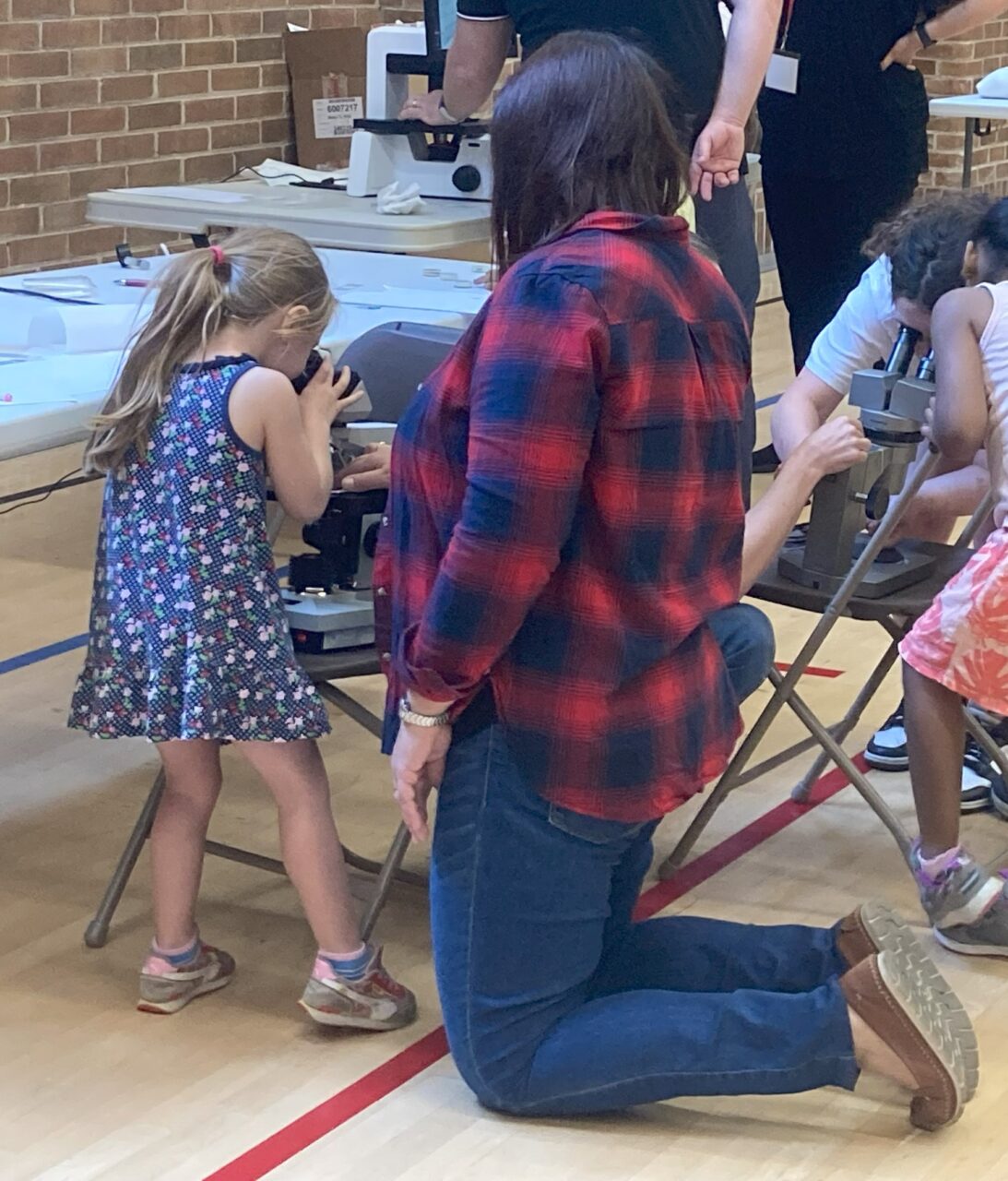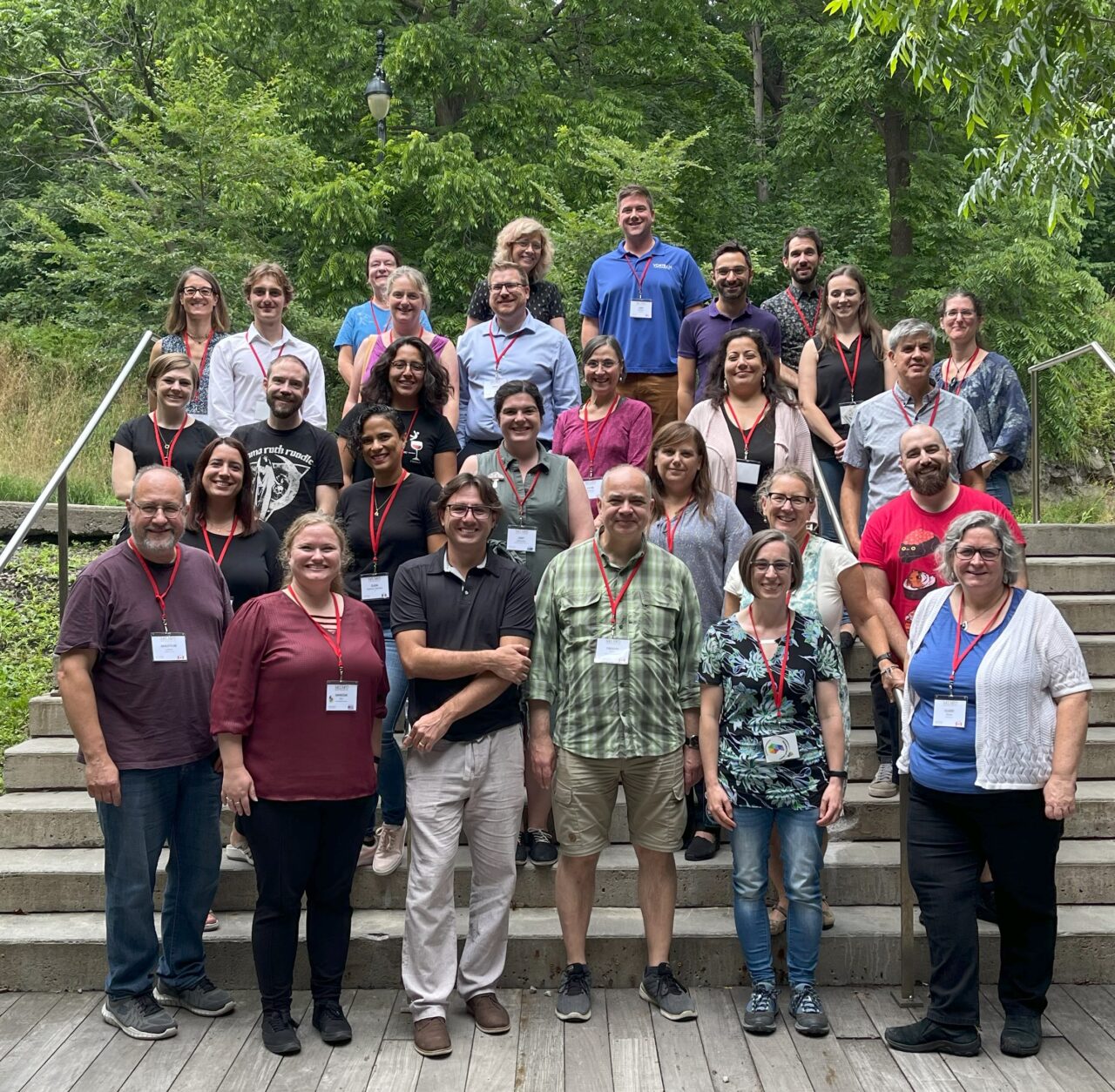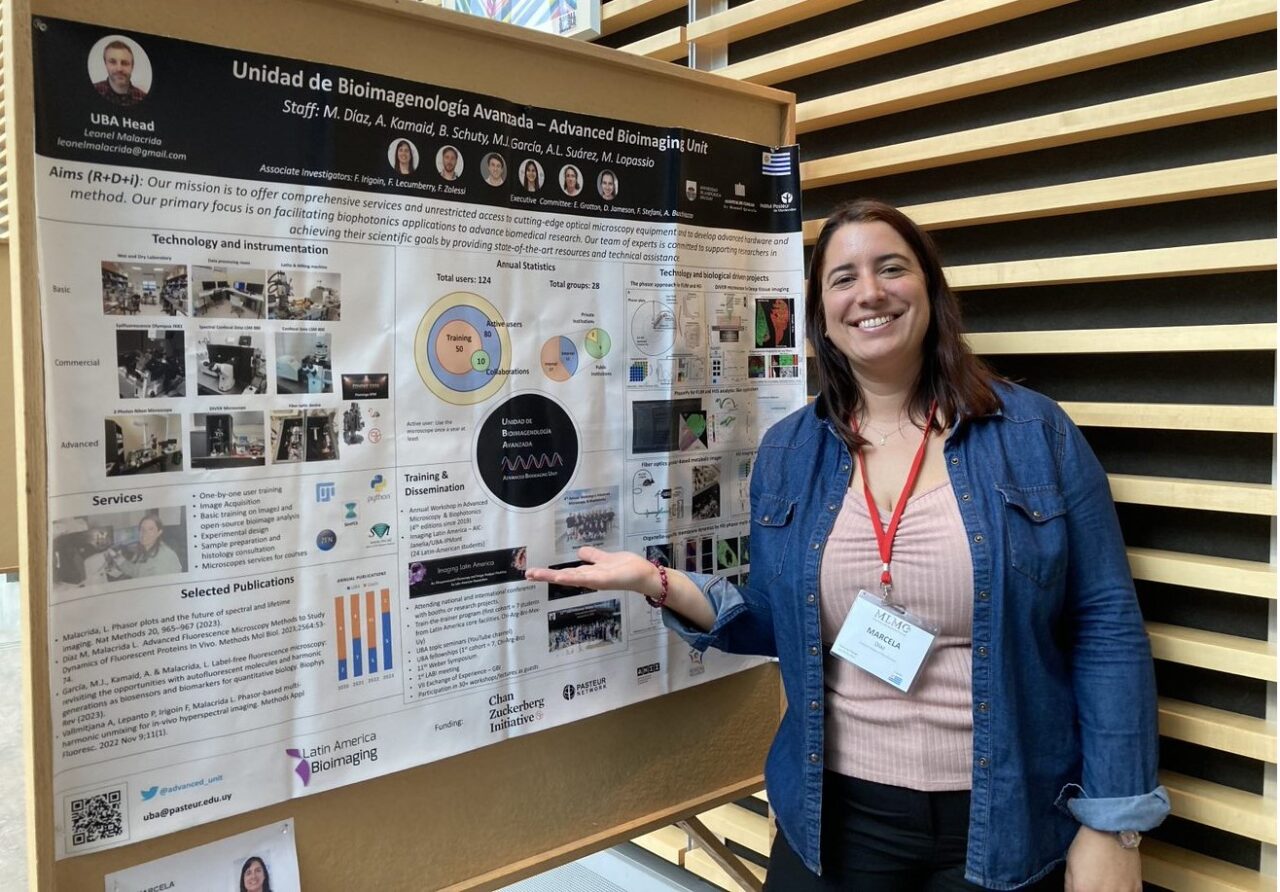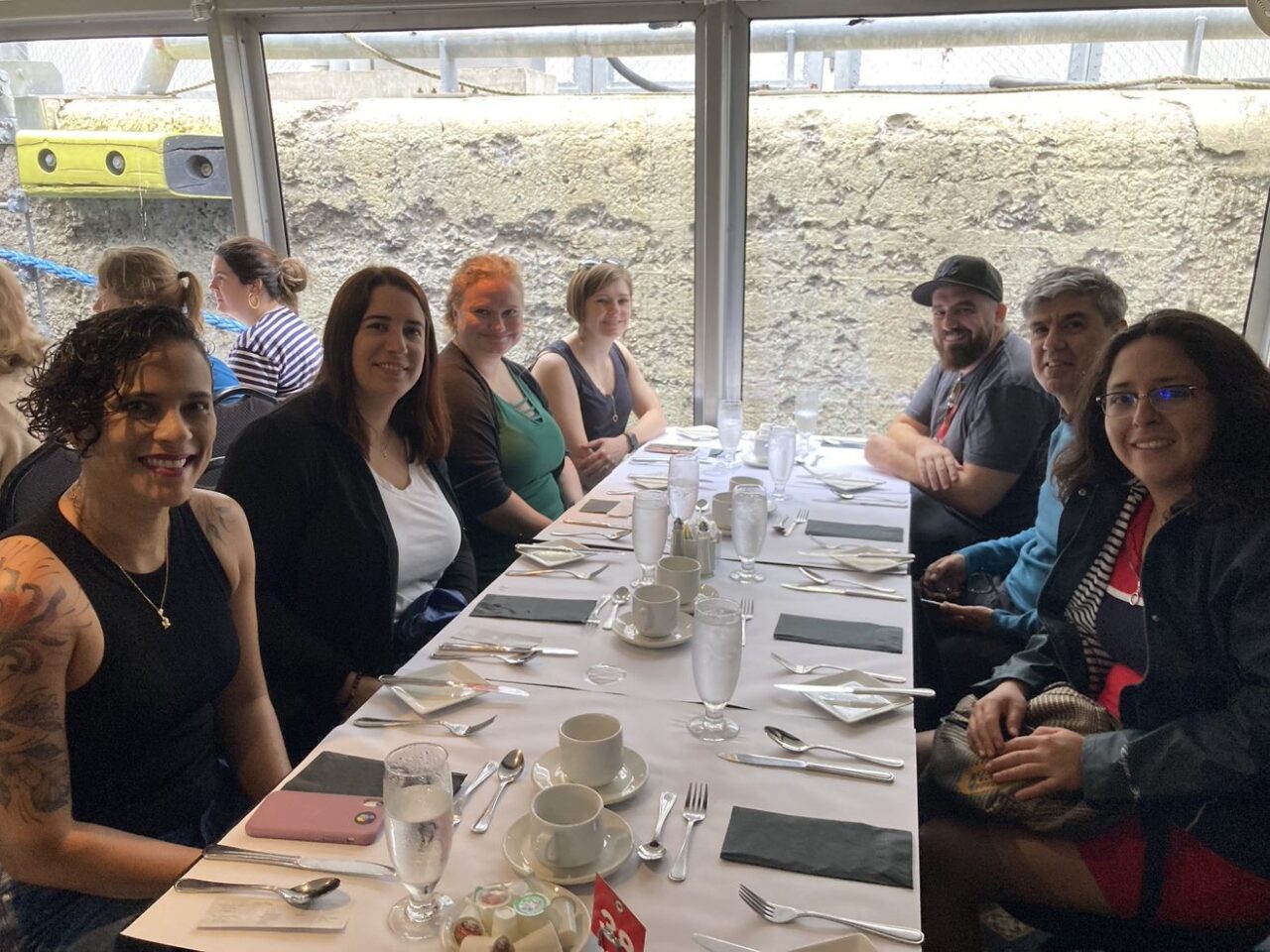
At five-day Montreal Light Microscopy Course Fundamentals – Train-the-Trainer, McGill’s Advanced Bioimaging Facility team shared its knowledge with scientists – and budding scientists, as part of kids outreach activity, Camp Lumi
Claire Brown, PhD, Associate Professor in McGill’s Department of Physiology at the School of Biomedical Sciences and Scientific Director at the Advanced Bioimaging Facility (ABIF), has taught light microscopy since 2010. In July, Prof. Brown, the ABIF staff imaging scientists, and a team of international speakers and instructors began training imaging scientists from Africa, Europe, North and South America and Australia on how to run the course in their own institutions.
The five-day Montreal Light Microscopy Course (MLMC) Fundamentals – Train-the-Trainer course was jointly organized by Global BioImaging, Canada BioImaging, and BioImaging North America, and funded in part by the Chan Zuckerberg Initiative. Topics included: transmitted light microscopy techniques; fluorescence imaging; and multidimensional imaging. Mobility funding from BioImaging North America and Global BioImaging made it possible for instructors and course participants to attend.
“The objective of the course was to bring imaging scientists or people working in imaging facilities in, to teach them how to run a microscopy fundamentals course,” Prof. Brown said. “We broke the courses down into transmitted light techniques, where you just look at how the light interacts with the sample, and fluorescence techniques where specific molecules are tagged with a fluorescent probe within the sample. Lastly, we covered advanced methods such as three-dimensional imagings.”
According to Prof. Brown, the main topics discussed in the course were the fundamentals researchers need to know to learn more advanced methods. “We ran the lectures and the hands-on activities that we use in our course, and then we had breakout sessions where we could talk in small groups about what we do, where there might be some gaps, and what could be added to the content. Our plan is to continue to develop the course over time,” explained Prof. Brown.
Artificial Intelligence has also made its way into the realm of imaging technology, says Prof. Brown. “It’s being used primarily in two areas. One is in image analysis and image processing. It’s being used to improve image quality so that you can see things that may be difficult to see in the raw data. It’s very good at improving signal-to-noise, so you get nice images where you can identify objects and track them if it’s a live sample, for instance. It’s also being used on the image acquisition side for smart microscopy, where you can program the microscope to do certain things. For instance, maybe you want it to image things of a certain size, or you want it to identify a specific event and then change the imaging conditions to see that event at a higher resolution, or to look at it with more detail, maybe zoom in on it and image it.”
According to Youssef Chebli, PhD, manager of the Multi-scale Imaging Facility and research associate, AI is also used to help scientists prepare their samples before they are imaged. “Depending on the nature of the samples and how they were treated, AI would be able to tell them the best way to prepare the sample. AI has also been used for diagnostic purposes. For example, in X-rays, CT scans, and MRIs, AI will help diagnose diseases much quicker.”
In addition to being rigorously instructive, the MLMC allowed for some high-level fun. At the mid-point of the event, organizers conducted an outreach event for a summer camp called Camp Lumi, in the suburb of Notre Dame de Grace, (N.D.G.). “We reached 150 kids from ages 4 to about 13, and all of the people who were taking our course came with us. We had instructors from professional microscopists from South America, Europe, Australia, Africa and North America, working with the kids. It was an event within the event,” said Prof. Brown.
McGill has several outreach programs aimed at sharing knowledge and resources with the community. The programs offer workshops and activities for students in elementary and high schools. The aim is to inspire and engage students in science, technology, engineering, and mathematics (STEM) fields. The program also offers mentorship opportunities for McGill students who want to get involved in science outreach.













